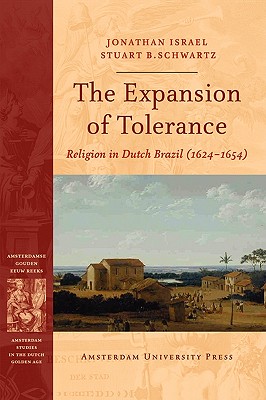

 Amsterdam University Press
Amsterdam University Press
The Expansion of Tolerance: Religion in Dutch Brazil (1624-1654)


Key Metrics
- Jonathan Israel
- Amsterdam University Press
- Paperback
- 9789053569023
- 8.39 X 6.02 X 0.16 inches
- 0.22 pounds
- Religion > Religion, Politics & State
- English
 Secure Transaction
Secure TransactionBook Description
Of all the European powers, the Dutch were considered the most tolerant of minority religious practices in their colonies. In The Expansion of Tolerance, a pair of historians examines this unusual sensitivity in the case of the seventeenth-century Dutch colonies of Brazil.
Jonathan Israel demonstrates that religious tolerance under Dutch rule in Brazil was unprecedented. Catholics and Jews coexisted peacefully with the Protestant majority and were allowed freedom of conscience and unfettered private worship. Stuart Schwartz then considers the Dutch example in light of the Portuguese colonies in Brazil, revealing that the Portuguese were surprisingly tolerant as well.
This collaboration will be of interest to anyone studying colonial history or the history of religious tolerance.
Author Bio
Jonathan Israel’s work is concerned with European and European colonial history from the Renaissance to the eighteenth century. His recent work focuses on the impact of radical thought (especially Spinoza, Bayle, Diderot, and the eighteenth-century French materialists) on the Enlightenment and on the emergence of modern ideas of democracy, equality, toleration, freedom of the press, and individual freedom.
His books include European Jewry in the Age of Mercantilism, 1550–1750 (1985); The Dutch Republic: Its Rise, Greatness, and Fall, 1477–1806 (1995); Radical Enlightenment: Philosophy and the Making of Modernity, 1650–1750 (2001); Enlightenment Contested: Philosophy, Modernity, and the Emancipation of Man 1670–1752 (2006); and A Revolution of the Mind: Radical Enlightenment and the Intellectual Origins of Modern Democracy (2009).
Source: Institute for Advanced Study
Videos
No Videos
Community reviews
Write a ReviewNo Community reviews